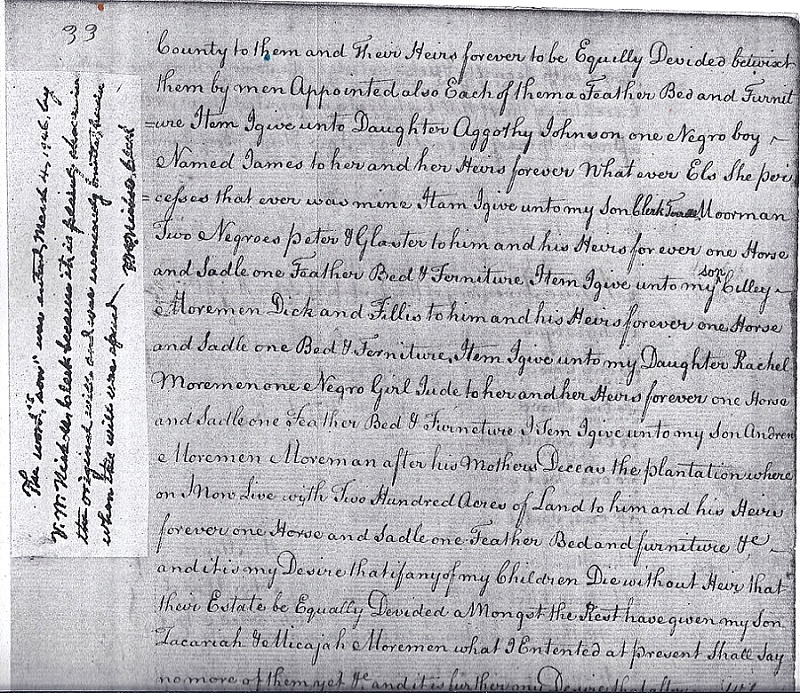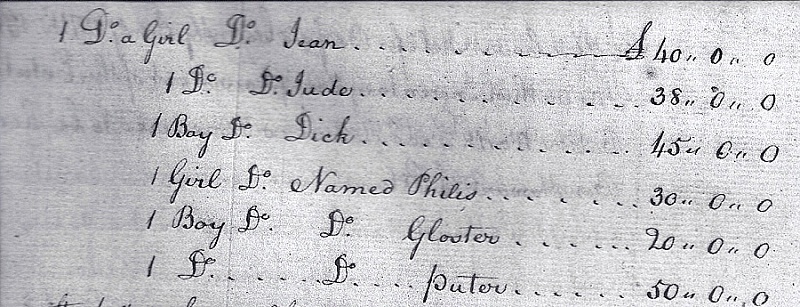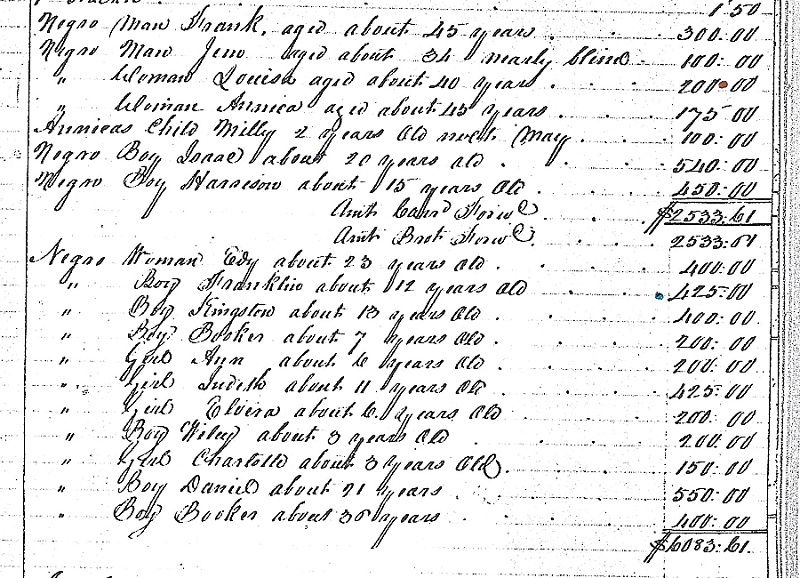.
Although the majority of my ancestors were Northerners or living in Scandinavia, Ireland, Germany, or Spain during the early years of our country, I cringe now knowing that I have a number of ancestors who were southern slave owners. Up until several years ago, I was in the dark about this subject. It wasn’t something that had been passed down through my family’s oral history. I knew that I had ancestors who lived in Virginia and North Carolina, but I somehow imagined them as being uninvolved in the horror of slavery.
Reading through old probate records is a wonderful glimpse into the lives of our ancestors. I, of course, was excited when I had the opportunity to visit the Virginia courthouse where many of my ancestors lived. I made copy after copy of the old records, and anxiously sifted through them all when I got home from my long trip. It was so exciting to read through the list of their possessions and get a greater idea of what their lives were like. The emerging picture wasn’t a pretty one. What was disconcerting, was the fact that along with their furniture and dishes, livestock and farm equipment, there was a list of the slaves they owned. Humans listed as property. Their names, guessed age, and their value. Reading through it, I could tell that the extremely young and old weren’t worth nearly as much as the young adults – who could do hard labor.

As I was reading Narrative of the Life of Frederick Douglass this past week, this passage really spoke to me. I imagined that these slaves had to go through something similar at the time of my great-great-great-great grandfather’s demise.
“We were all ranked together at the valuation. Men and women, old and young, married and single, were ranked with horses, sheep and swine. There were horses and men, cattle and women, pigs and children, all holding the same rank in the scale of being, and were all subjected to the same narrow examination. Silvery-headed age and sprightly youth, maids and matrons, had to undergo the same indelicate inspection. At this moment, I saw more clearly than ever the brutalizing effects of slavery upon both slave and slaveholder.
After the valuation, then came the division. I have no language to express the high excitement and deep anxiety which were felt among us poor slaves during this time. Our fate for life was now to be decided. We had no more voice in that decision than the brutes [animals] among whom we were ranked. A single word from the white men was enough – against all our wishes, prayers, and entreaties – to sunder forever the dearest friends, dearest kindred, and strongest ties known to human beings. In addition to the pain of separation, there was the horrid dread of falling into the hands of Master Andrew. He was known to us all as being a most cruel wretch – a common drunkard, who had, by his reckless mismanagement and profligate dissipation, already wasted a large portion of his father’s property. We all felt that we might as well be sold at once to the Georgia traders, as to pass into his hands; for we knew that that would be our inevitable condition, – a condition held by us all in utmost horror and dread. ” (Narrative of the Life of Frederick Douglass, Chapter VII, p. 57-58, written in 1845, Signet Classic Edition, c 1997)
 It perfectly depicts what it must have been like to be a slave after the death of their master – to be at the mercy of the white men and their whims. I couldn’t help but think of all of those names listed in the probate records I had read. What happened to them? Were they split up? Were they sold off? Were my ancestors cruel? I know that everyone wants to think of their ancestors as having been kind and godly people. Pillars of the community. But I can’t possibly tell myself that MY ancestors must have been the nice ones that didn’t mistreat their slaves. THEY must have been kind and taught them to read and given them days off and of course NEVER beat them.
It perfectly depicts what it must have been like to be a slave after the death of their master – to be at the mercy of the white men and their whims. I couldn’t help but think of all of those names listed in the probate records I had read. What happened to them? Were they split up? Were they sold off? Were my ancestors cruel? I know that everyone wants to think of their ancestors as having been kind and godly people. Pillars of the community. But I can’t possibly tell myself that MY ancestors must have been the nice ones that didn’t mistreat their slaves. THEY must have been kind and taught them to read and given them days off and of course NEVER beat them.
The truth is, out of all of the probate records I’ve read so far, I haven’t found one slave that was freed after the death of one of my ancestors (as sometimes happened). They appear to have been split between their different heirs. Sometimes the younger children would be listed as someone’s son or daughter, but for the most part, I have no way of telling if they were related to one another, so I can’t tell if families were being broken up or not.
All I can do is share the records and hope that it helps someone in researching their family’s history.







